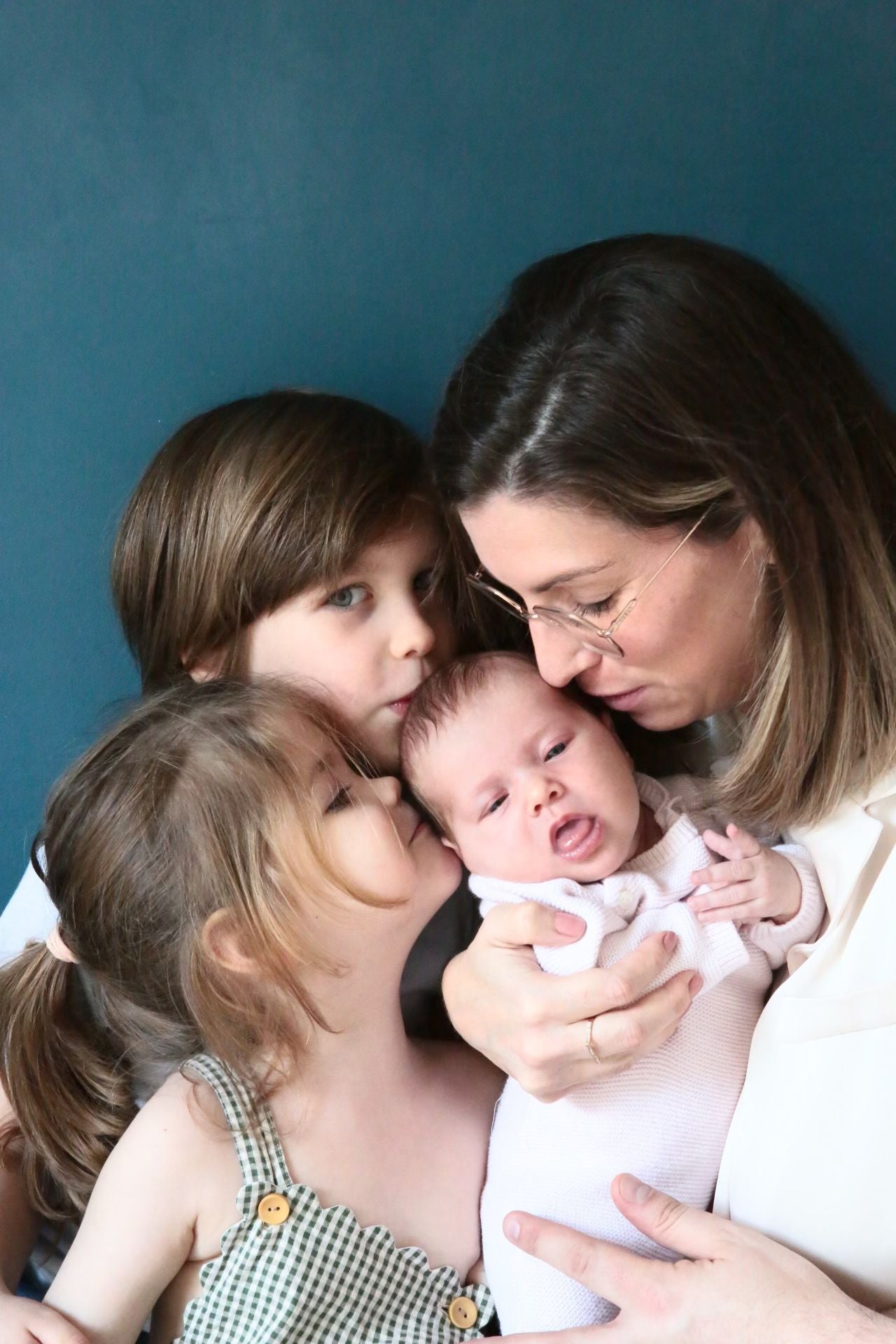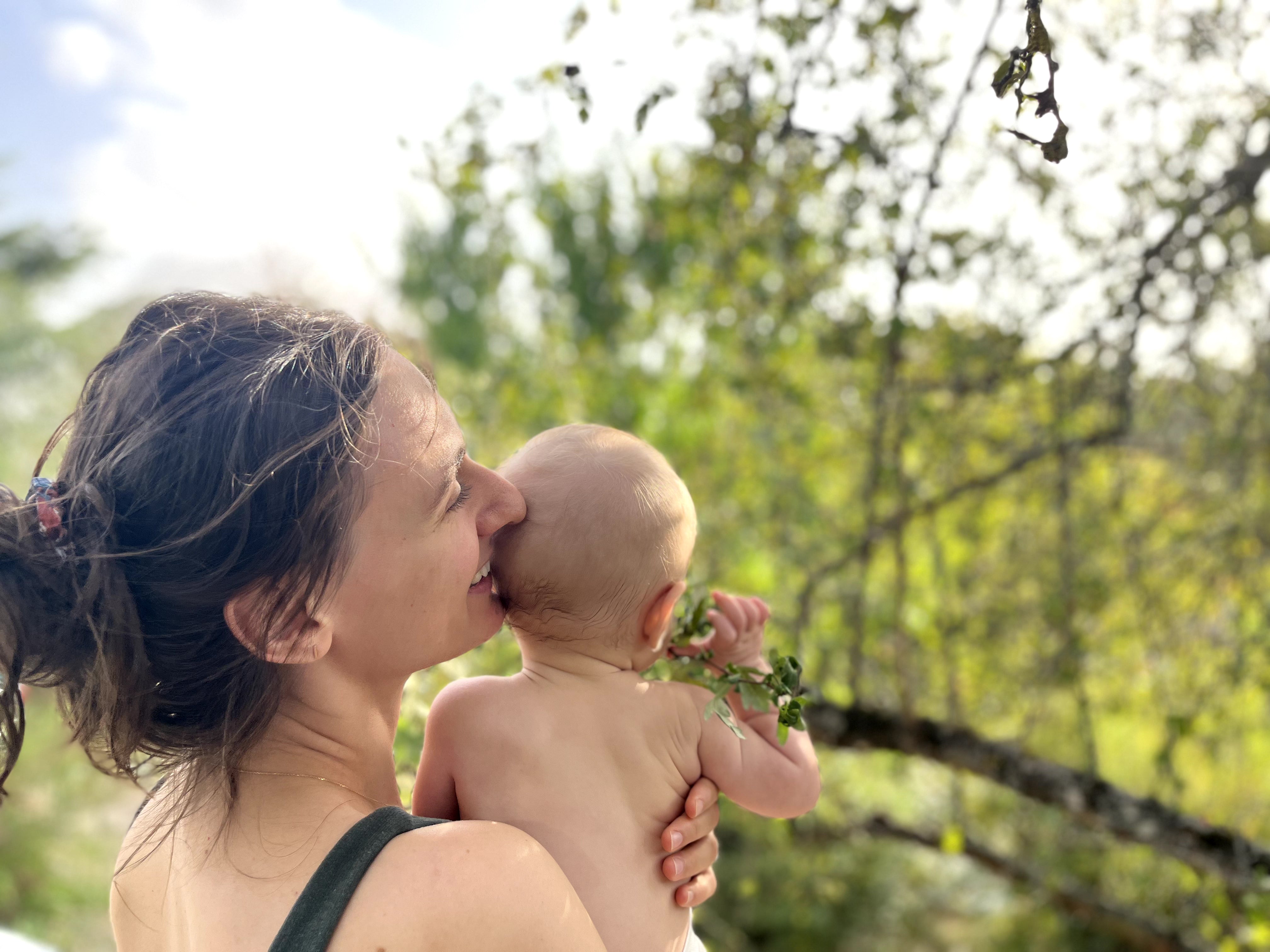
Expert Talk N°2: Anne-Charlotte, hospital midwife
Can you introduce yourself by giving your first name and profession?
I am Anne-Charlotte. I worked as a hospital midwife for 15 years and also for three years as a healthcare manager.
Currently, I write and produce a podcast dedicated to the postnatal period called "Le Cercle Post-Partum" (The Postpartum Circle). I am involved in the community on topics related to the postnatal period and supporting parents and families during this time. I am also the mother of three children.
As a professional, what is your vision of early childhood? How do you approach it in your practice?
Early childhood is a crucial period in life that requires support and guidance. A lot happens during this period, mainly at the level of health, for example, with the products we use, the food we choose for our children, our sleep routine and lifestyle rhythms. But it is also the period when we lay the foundations of human relationships with the attachment bond that develops from the earliest days of life.
In my practice, I am very sensitive to prevention and family information. I advocate for enhanced support in the postnatal period, which is a really difficult time for families. I am trained in developmental care for infants, which has made me very attentive to the needs and reactions of young children. The way we talk to them, touch them, and give them care, all play a real role in the relationship we build with them and in their well-being.
Why do babies need specific care products?
Infants are not miniature adults. They have their own unique needs, and the products used for them must be tailored to those needs. Their skin is highly reactive, and they are more sensitive to the substances they come into contact with. The risk of developing allergies is significant. During the early years of life, infants are exposed at increasingly younger ages and in greater quantities to numerous controversial substances for which we lack long-term effects data.
The lack of transparency regarding compositions and insufficient information about certain components in the products often misleads parents.
What advice do you give to young parents in terms of care?
I would say to use as few products as possible in the first months of life. Few products are necessary to take care of little ones. Diaper changes can be done with just clear water, a simple body and hair wash, and, if needed, a moisturising product or oil for the skin that can be applied in a massage. Also, saline solution can be used for eye and nose care. In over 90% of cases, that's sufficient.
What is used in maternity wards is not necessarily a guarantee of quality. It's important to know that these are often advertising partnerships. Read the labels, look for products of natural origin with the fewest possible ingredients, and be cautious: an organic label does not ensure the absence of endocrine disruptors, for example.
How, in your opinion, can care contribute to the well-being of babies and young children?
For me, the moments of care should be an opportunity to create a shared and exchanging moment. It is in these daily acts that relationships are woven. The infant nurtures their attachment bond through the care they receive. The stronger the attachment bond a baby or young child develops with their parent or parents, the more secure they will feel, and subsequently, the more they will develop their autonomy.
In the current fast-paced nature of our lives, where we can sometimes feel overwhelmed by work, managing the household, and family responsibilities, let's take advantage of the daily care routines to have genuine quality time with our little ones. This will be beneficial for everyone involved.




